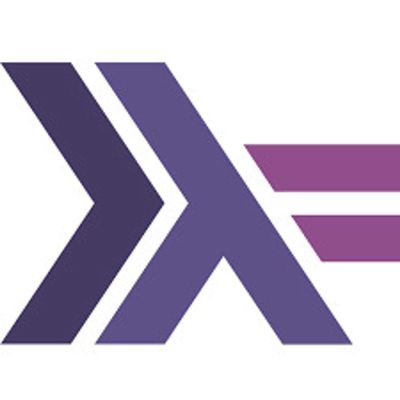This is the Haskell Interlude, where the five co-hosts (Wouter Swierstra, Andres Löh, Alejandro Serrano, Niki Vazou, and Joachim Breitner) chat with Haskell guests!
https://haskell.foundation/podcast/
Gesamtlänge aller Episoden: 1 day 20 hours 51 minutes
episode 19: 19: Marc Scholten
In this episode Marc Scholten is interviewed by Andres Löh and Joachim Breitner. They talk about the Integrated Haskell Platform web framework (IHP), implicit parameters and nix.
episode 18: 18: Matthias Pall Gissurarson & Jimmy Koppel
In this episode Matthias Pall Gissurarson & Jimmy Koppel are interviewed by Wouter Swierstra and Niki Vazou. They talk about program synthesis, typed holes, program repair, and generating properties using a new technique called ECTAs.
episode 17: 17: Ningning Xie
Ningning Xie is interviewed by Niki Vazou and Andres Loh. Ningning first contributed to GHC at her Google summer of code project with a very ambitious goal of implementing the whole dependent Haskell. Also later she fixed several ghc bugs and worked on Koka’s Algebraic effects. Her future hope and advice is to use programming language concepts on real-word problems.
episode 16: 16: Oskar Wickström
Oskar Wickström is interviewed by Wouter Swierstra and Alejandro Serrano, he will tell us a little bit about property-based testing (PBT) Haskell code but also applying these ideas to the testing of complete systems. He will say a little bit about interfacing Haskell to other languages and even with your web browser and what it's like to learn Rust as a Haskell programmer.
episode 15: 15: Facundo Dominguez
Facundo Dominguez is interviewed by Niki Vazou and Joachim Breitner. Facundo Dominguez tells us the difference between STM and SMT. We also talk about Liquid Haskell and its relation to dependent types and the `QualifiedDo` extension -- which is one of the most highly discussed GHC proposals -- and the general GHC proposals. And, finally, Facundo lets have Haskell peacefully coexist with other languages thanks to his work in the build system Bazel.
episode 14: 14: Ryan Trinkle
Ryan Trinkle is interviewed by Joachim Breitner and Niki Vazou. Ryan Trinkle has co-founded Obsidian Systems, a company that not just uses Haskell but even more exotic tech that as Functional Reactive Programming (FRP) and Nix. Ryan shed some light on the business side of Haskell and we get to hear that hiring for Haskell is actually excellent.
episode 13: 13: David Christiansen
David Christiansen is interviewed by Alejandro Serrano and Wouter Swierstra. They talk about many functional programming things, from Idris to Racket and of course Haskell and David's new role as the executive director of Haskell Foundation.
episode 12: 12: Gergő Érdi
Gergő Érdi is interviewed by Wouter Swierstra and Andres Löh. Gergő has an interesting path into Haskell taking many twists and turns. This episode discusses about these twists and Gergő's recent book on implementing retro computers using Haskell.
episode 11: 11: Simon Peyton Jones
Simon Peyton Jones is interviewed by Andres Löh and Joachim Breitner. Simon is the creator of Haskell and in this episode he talks about his new position at Epic, the origins of Haskell and why "it feels right", and the (extra)ordinary Haskell programmers.
episode 10: 10: Nadia Polikarpova
Nadia Polikarpova is interviewed by Alejandro Serrano and Niki Vazou. Nadia is an assistant professor at UCSD, where she works on improving how we write programs. They talk about some of her projects, like Hoogle+ and Synquid, and how she approaches teaching about these topics.
